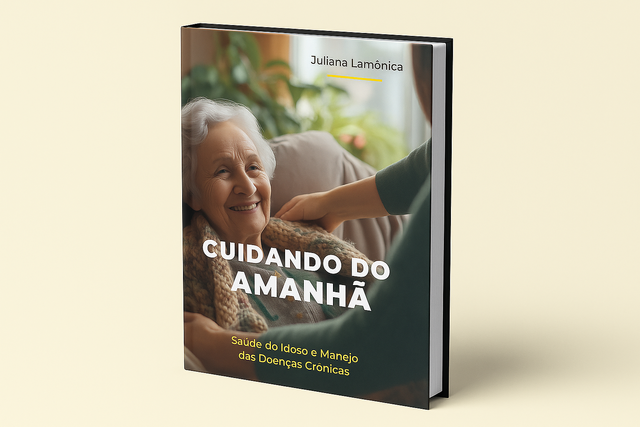Juliana Lamônica: A Commitment to Public Health Care
A career dedicated to dignity in aging
Juliana de Souza Lamônica is a public health nurse, with a master’s degree and currently pursuing a PhD in Collective Health at the Federal University of Bahia (UFBA) . Originally from Itararé (São Paulo, Brazil), she has built her career focusing on elderly care, combining qualified listening, clinical experience, and engagement with public policies in Salvador (Bahia, Brazil). Her academic background includes specializations in Intensive Care, Emergency and Urgency, Public Health, Primary Care, and Family Health.
Juliana is part of a generation of professionals who understand care as an ethical, political, and sensitive action. Throughout her path, the pursuit of critical education has been accompanied by active involvement in different healthcare contexts, with a consistent focus on humane and integrated practices.
Her academic journey is also a tool for social transformation. Currently, in her doctoral research, she investigates the impact of sexual violence within the scope of public health - a topic that requires not only scientific rigor but also courage and social commitment. Over the years, Juliana has consolidated a way of working that connects theory, practice, and sensitivity in response to the complex challenges of contemporary public health.
Professional practice: from direct care to network building
Throughout her career, Juliana has developed a professional practice centered on comprehensive elderly care, promoting quality of life, autonomy, and respect for individual subjectivities. Her experience includes clinical work in high-complexity situations, as well as community-based initiatives in vulnerable territories.
Her work in primary care , within the Brazilian Unified Health System (SUS) , allows her to understand the interplay between formal and informal care - the latter often provided by family members facing both physical and emotional challenges. Juliana emphasizes the need for public policies that support and recognize caregivers, proposing educational programs, emotional support strategies, and community network development.
She also contributes actively to the education of health professionals, focusing on humanized practices. Her involvement in courses, workshops, and training initiatives strengthens the pedagogical aspect of her work. For Juliana, caring is also teaching - and teaching is often a form of care.
In interviews, research projects, and field experiences, Juliana consistently reinforces the role of public health as a space for inclusion, citizenship, and justice. Listening, building trust, and respecting life stories have become tools as vital as any clinical technique in her daily work.
A book rooted in practice: Cuidando do Amanhã (Caring for Tomorrow)
Recently published, Cuidando do Amanhã: Desafios e Práticas no Cuidado com Idosos e Cuidadores (Caring for Tomorrow: Challenges and Practices in Elderly and Caregiver Support) encapsulates Juliana’s professional journey in the form of a narrative and practical guide. The book is aimed at health professionals, caregivers, and family members, offering practical guidance and critical reflections on aging and caregiving.
The content is organized into key themes: nutrition, medication, mobility, autonomy, emotional support, assistive technologies, and the rights of elderly people. Each chapter includes real-life examples and lived experiences, making the reading accessible, ethical, and empathetic. The book not only focuses on the elderly but also gives voice to caregivers - a central concern throughout the work.
Juliana highlights that caregiving must be understood as a collective endeavor. In an era of growing elderly populations and increasing pressure on health systems, her message is clear: we must plan the future of care today, creating more humane, sustainable, and just practices.
The publication is available in both print and digital formats and is already being used in training programs and educational initiatives in various Brazilian states.
Learn more
Virtual Health Library
Ministry of Human Rights and Citizenship
Caregiver Manual for the Elderly
